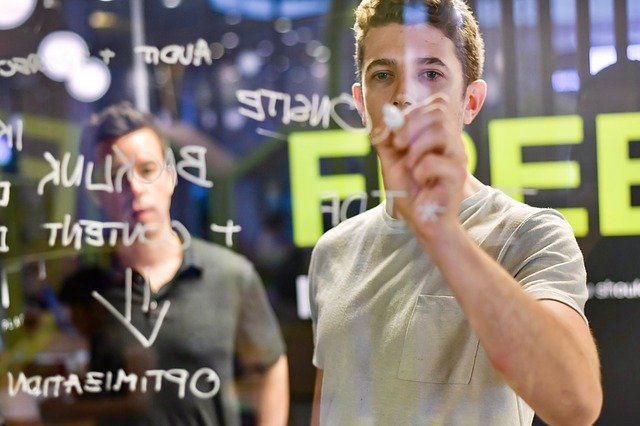Off-page SEO strategies are the real drivers of domain authority, credibility, and long-term organic growth.According to a HubSpot 2024 SEO Trends Report, 70% of users never go past the first page of Google search results.

Higher education institutions operate in a fiercely competitive digital landscape where visibility is everything.
While on-page SEO elements like optimized content and technical improvements help universities rank higher on search engines, off-page SEO strategies are the real drivers of domain authority, credibility, and long-term organic growth.
In 2024, search engine optimization for higher education is more critical than ever. According to a HubSpot 2024 SEO Trends Report, 70% of users never go past the first page of Google search results.
This means universities that fail to optimize their off-page SEO are losing prospective students to competitors. Moreover, Backlinko’s 2024 SEO Study found that pages with a higher number of referring domains rank significantly better than those with fewer backlinks, making link-building an indispensable aspect of higher education digital marketing.
The real challenge for universities is to establish authority in a crowded digital ecosystem.
Traditional backlink-building tactics like directory submissions and forum links no longer hold weight. Instead, higher education institutions need innovative off-page SEO strategies to improve SEO for universities.
Alumni-Driven Link Building: Leveraging Graduate Networks for SEO
One of the most underutilized assets in higher education digital marketing is alumni. Graduates maintain professional and academic networks that, if leveraged correctly, can significantly boost SEO for higher education.

According to a 2024 LinkedIn Education Marketing Report, 58% of alumni mention their alma mater in their professional profiles. However, most universities fail to capitalize on this organically available backlink opportunity.
Encouraging alumni to include backlinks to their university in blog posts, personal websites, and LinkedIn articles is an easy yet powerful way to enhance search engine optimization for higher education.
A strong example comes from Harvard Business School (HBS), which actively encourages its alumni to contribute guest articles to industry publications while linking back to HBS’s thought leadership content.
This approach has resulted in backlinks from high-authority domains like Forbes, The Financial Times, and Harvard Business Review, boosting its domain authority and visibility in search rankings.
Another effective method is hosting alumni-driven digital events.
For example, MIT Sloan School of Management’s 2024 Digital Alumni Meet generated over 300 backlinks from attendees’ corporate blogs and LinkedIn posts.
The event recap page alone earned links from authoritative industry sources, improving MIT’s higher education SEO. Universities that strategically engage alumni for link-building initiatives will see measurable improvements in higher ed SEO rankings and digital presence.
Faculty-Centric PR for Authoritative Backlinks
Faculty members are often overlooked in higher education marketing agency strategies, yet they hold immense SEO potential. As subject matter experts, they publish research papers, appear in media interviews, and contribute guest articles—each an opportunity for valuable backlinks.

A 2024 Search Engine Journal study found that academic research linked from high-authority domains like government (.gov) and educational (.edu) websites significantly boosts domain authority.
Stanford University has mastered this approach by ensuring its faculty research is regularly cited in top-tier news outlets such as The Washington Post and Bloomberg. These backlinks strengthen its SEO for universities, making its research pages some of the highest-ranking in Google’s SERPs.
In another case, London Business School launched a faculty-led digital PR campaign in early 2024, focusing on AI-driven business insights.
The initiative led to guest articles and interviews with faculty members in The Economist and Harvard Business Review, resulting in over 1,000 high-authority backlinks in less than six months.
To implement this strategy, universities should:
- Position faculty members as thought leaders by pitching expert commentary to journalists.
- Encourage guest articles on reputable media platforms with direct links back to the university website.
- Repurpose faculty research into digestible formats like whitepapers and industry reports, which attract backlinks from academic and business communities.
- By integrating faculty-driven PR with higher ed digital marketing, universities can earn backlinks that substantially improve rankings and authority.
Hyper-Local SEO for Universities: Getting Backlinks from Community Partnerships
Local SEO isn’t just for businesses—it’s also a powerful tactic in higher education digital marketing. Universities often focus on global outreach but fail to harness local partnerships for authoritative backlinks.

According to BrightLocal’s 2024 Local SEO Report, 78% of local searches result in an offline engagement. Universities that establish partnerships with local businesses, government agencies, and media outlets can secure valuable backlinks while reinforcing their regional presence.
Take University of California, Berkeley, for instance. Their 2024 collaboration with San Francisco’s Chamber of Commerce resulted in media coverage and high-quality backlinks from government (.gov) and local news sites.
Similarly, Duke University launched a sustainability project with local businesses, earning backlinks from high-authority local sites, significantly enhancing their search engine optimization higher education rankings.
To leverage local SEO, universities should:
- Partner with local businesses on research projects and event sponsorships.
- Engage with local media for coverage on student-led community initiatives.
- Get listed on local business directories and event calendars with backlinks to the university website.
- SEO for universities isn’t just about global rankings—it’s also about dominating local search results through strategic backlink acquisition.
The Power of Open Educational Resources (OER) for Backlink Generation
Creating Open Educational Resources (OER) is an innovative way to attract organic backlinks while positioning a university as an industry leader.

A 2024 UNESCO report stated that freely accessible academic resources are linked 250% more frequently than gated content. Leading institutions like Yale University and University of Cambridge have dedicated OER platforms offering free lecture notes, research papers, and online courses.
These resources consistently earn backlinks from educational websites, academic forums, and government institutions. For example, Harvard’s Open Courses Initiative saw a 45% increase in referral traffic in 2024 due to backlinks from global education blogs and .edu websites.
By providing valuable academic content for free, institutions naturally attract authoritative backlinks that strengthen their higher education digital marketing efforts.
To execute this effectively:
- Develop high-quality OER materials such as eBooks, whitepapers, and video lectures.
- Distribute these resources via academic and industry websites.
- Promote them on forums like ResearchGate and Google Scholar for additional backlinks.
- Universities that integrate OER into their higher education SEO strategy will enjoy long-term benefits in visibility, authority, and engagement.
Strategic Outreach to Study Abroad Consultants and Educational Blogs
With international student recruitment being a key focus of higher education marketing agency efforts, partnering with study abroad consultants and education bloggers is an untapped goldmine for backlinks.

A 2024 ICEF Monitor Report revealed that 63% of international students rely on education blogs and agency websites to decide on their university choice.
Institutions that secure backlinks from these sources gain not only SEO benefits but also increased student inquiries.
University of Toronto, for instance, collaborated with top study abroad platforms in 2024, leading to over 500 high-quality backlinks and a 27% boost in organic search visibility.
Similarly, Monash University partnered with prominent education bloggers to publish in-depth student experience stories, further solidifying its SEO for higher education.
Universities should:
- Establish relationships with study abroad consultants for backlink placements.
- Work with student influencers and educational bloggers on guest posts.
- Get featured in international student guides and comparison portals.
- These strategies provide a dual advantage—enhancing higher ed SEO while strengthening global student outreach.
Conclusion
Off-page SEO is no longer just about link-building; it’s about strategic digital authority building.
By engaging alumni, leveraging faculty expertise, optimizing for local SEO, creating open educational resources, and collaborating with education-focused platforms, universities can secure high-quality backlinks that improve SEO for higher education.
As search engine algorithms continue to prioritize credibility and expertise, institutions must rethink their approach to higher education digital marketing.
The question now is!
How prepared is your university to build authority in the ever-evolving digital education landscape?
![Higher Education Marketing 2023 and Beyond [Detailed Analysis], Higher Education Marketing, Education Marketing, Education PR, Digital PR, Public Relations, Digital Marketing, social media, SEO for Higher Education, Digital Marketing for Higher Education](https://firdoshkhan.in/wp-content/uploads/2022/11/Higher-Education-Marketing-Strategies-Post-300x209.jpg)

